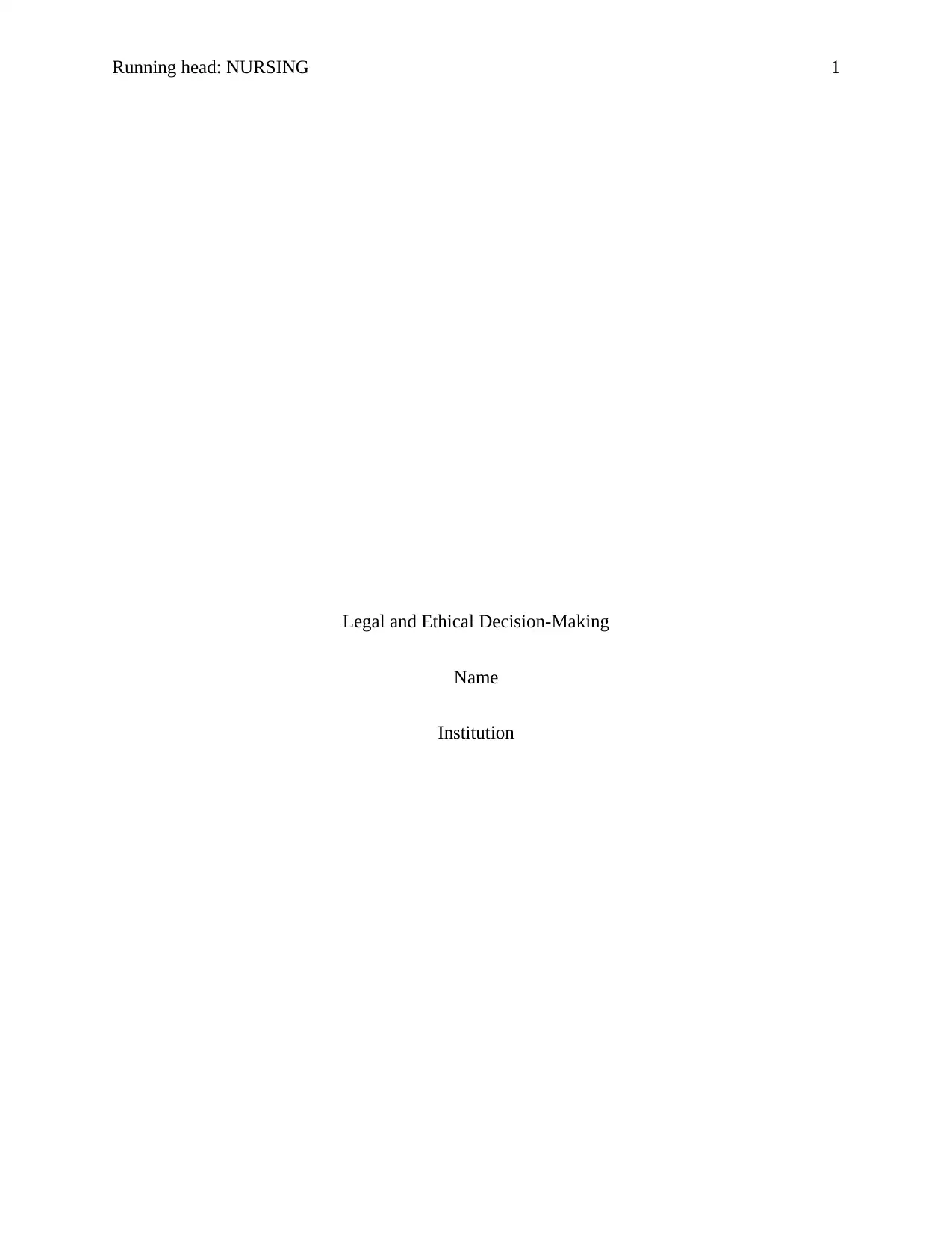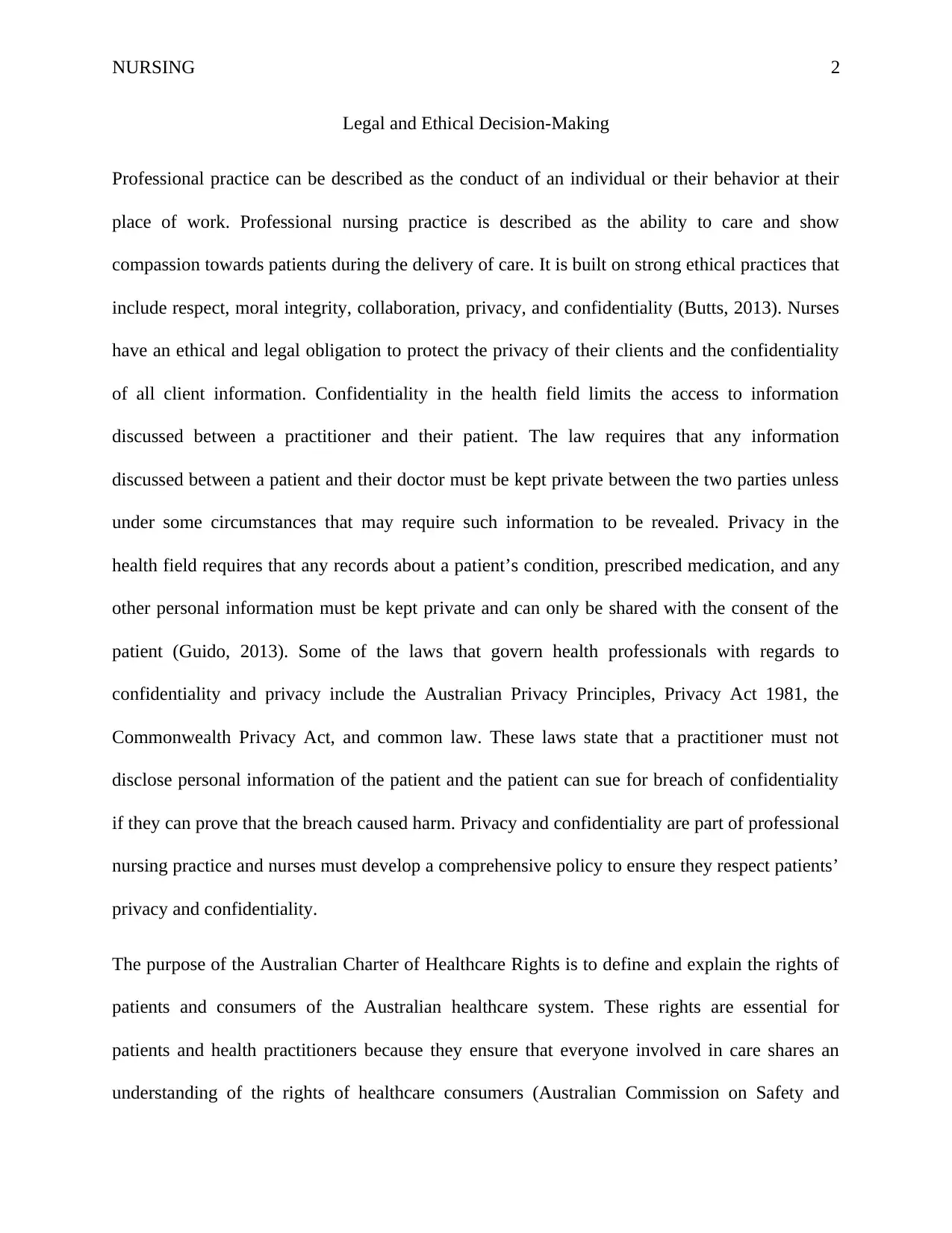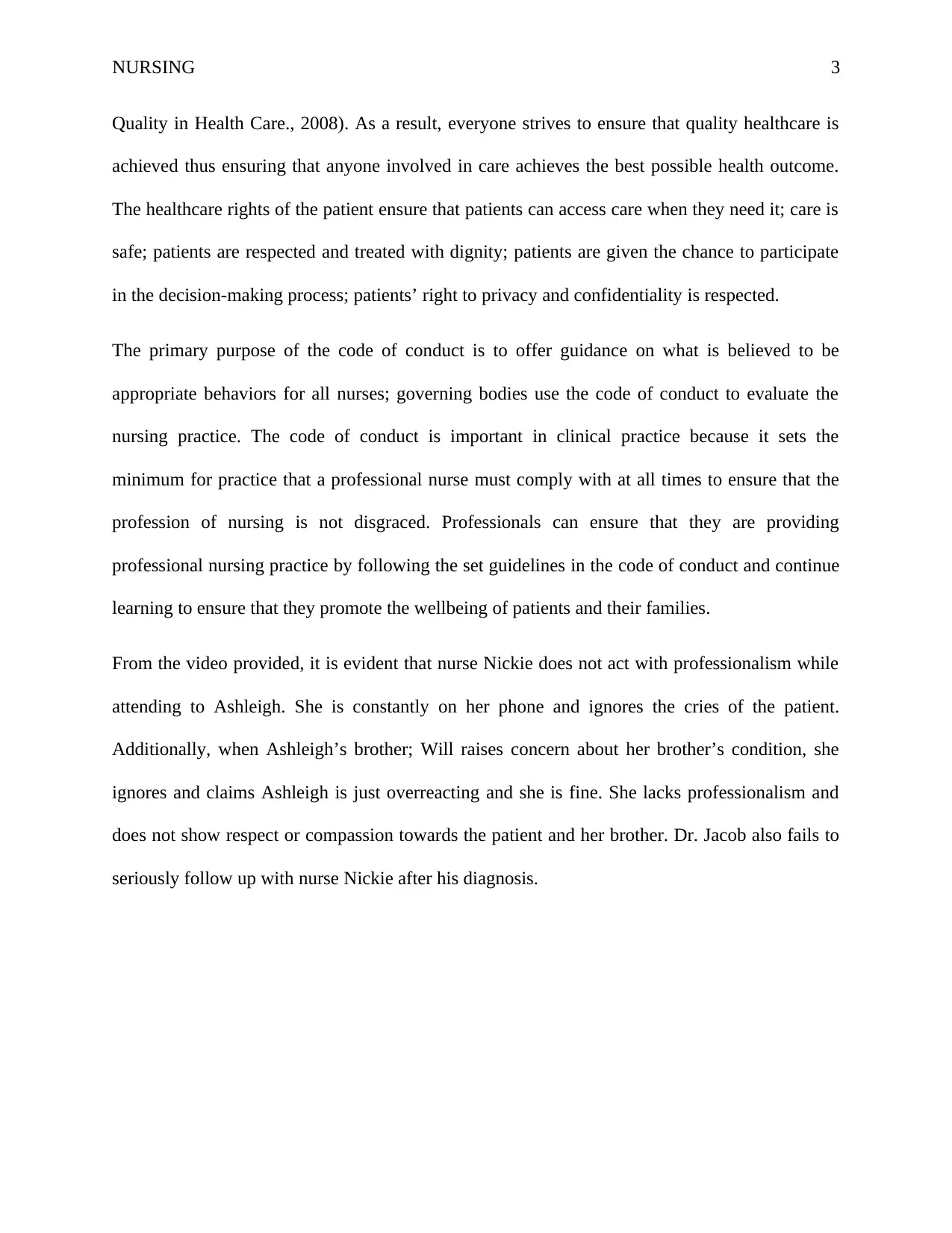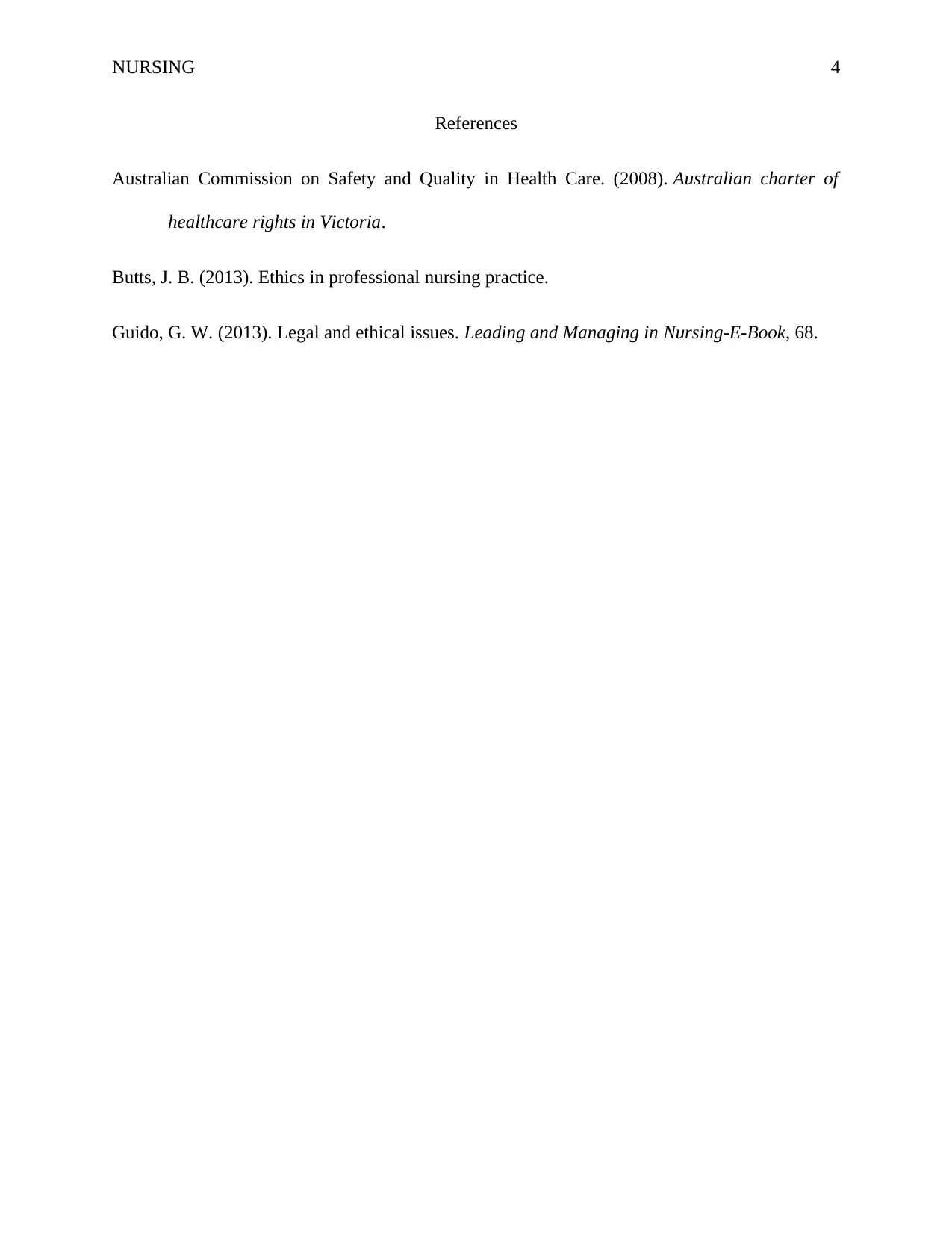Ethical and Legal Responsibilities in Nursing: A Case Study Analysis
VerifiedAdded on 2022/08/20
|4
|707
|17
Report
AI Summary
This report delves into the critical intersection of ethical and legal considerations within nursing practice. It explores the significance of patient confidentiality, the Australian Charter of Healthcare Rights, and the nurse's professional code of conduct. The analysis highlights the importance of upholding patient privacy, respecting their rights, and maintaining a high standard of ethical behavior, as exemplified by the ethical shortcomings observed in the case study of nurse Nickie. The report also examines legal frameworks like the Australian Privacy Principles and the Privacy Act 1981, emphasizing the potential legal ramifications of breaching patient confidentiality. The report provides a comprehensive overview of ethical guidelines, legal standards, and professional responsibilities, offering valuable insights for nursing professionals and students seeking to navigate the complexities of healthcare ethics.
1 out of 4











![[object Object]](/_next/static/media/star-bottom.7253800d.svg)